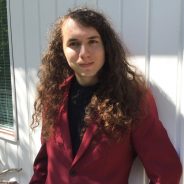The governance working group was founded to recognize and challenge the colonial hierarchies embedded in our relationships to land. This work is both systemic and personal; it demands we recognize not only the oppressive practices of governments and corporations, but also how our own lifestyles and practices legitimate oppressive norms and sustain ongoing colonialism. This recognition is foundationally important for several reasons. Firstly, we can neither develop nor maintain an authentic relationship to land without a sufficient understanding of the forces which act upon and through us. Second, we cannot envision a decolonial system of governance — for land or for human beings — without continuing to recognize how colonialism and capitalism structure and informs our relationships.
The ideas which support colonial land relations are many and widespread — they include but are not limited to the commodifying logic of capitalism, the positioning of humans as “above” or “outside” other worldly forces, and the presentation of state authorities and academic knowledges as superior to and incompatible with indigenous practice. All of these ideas are founded upon a logic of separability, which views parts of natural and human-made bodies — such as individual humans, plots of land, or individual laws — as independent and isolated from one another. Understanding people, objects, actions and processes as separate obfuscates the ways in which they are always already interdependent, and allows us to create hierarchical relations, in which one part of a whole is privileged above others.
The governance working group’s longest mission has been to investigate alternate models of governance and relationship-building on and in relation to land and its inhabitants. These models, which disrupt the capitalist logics of land as commodity, envision a symbiotic relationship between human and more-than-human beings, in which the aim of agricultural stewardship is not singular profit but mutual and ongoing sustenance and regeneration.
Listening to the Land is a concrete realization of this project. The project is foundationally communitarian; it brings people together that they might learn from and build right relation to each other. It is other-than-capitalist; the purpose of Listening to the Land events is neither production nor promotion, but instead recognition and relationship-building. It is also local and land-based. Each Listening to the Land event represents the residents and workers of a local farm opening themselves to those who live on the land with them — whether as visitors, settlers, or indigenous peoples — and thus challenging, at least initially, the logic of separability that underpins both national borders and property lines.
Board Members
Gerhardt Pritchard
Community Member, Student
(Quest University Canada)
Gerhardt (he/she/they) is a fourth-year student at Quest University Canada, where he studies LGBTQIA+, feminist, and indigenous philosophy. The youngest member of the Foodlands team, Gerhardt was raised on-and-off of Fraser Common Farm.
In Squamish, Gerhardt has hosted and spoken at events hosted in association with Pride Squamish, the Howe Sound Welcome Centre, and the Quest University Lumen Room. Their research and writing attempts to at once acknowledge and bridge, inasmuch as is ever possible, the epistemic, conceptual, and empathic gaps between hegemonic and marginalized experiences and communities. In their work with Foodlands, Gerhardt hopes to investigate what mutualistic and ongoing decolonization might (and already does) look like in British Columbia, and within that, what it means to exist as a settler on and in relation to stolen and storied, yet undeniably co-inhabited land.
Michelle Tsutsumi
In transitioning from trauma counselling to organic farming, my passion for organizing and engaging community networks truly started to thrive. With over two decades of non-profit work, communications, organizational process, and interconnectivity enthrall me. I flourish in work cultures of generative collaboration and shared leadership and, in turn, I endeavour to create this space for others wherein they feel seen, heard, and celebrated. My present area of focus is holding space for difficult conversations and exploring the embodiment of disrupting dominant cultural characteristics.
I grow food on the unceded land of Secwépemcul’ecw and, in doing so, acknowledge the tension inherent in the practice of agriculture and Indigenous-settler relations. As a communicator, I engage in difficult conversations around dominant cultural mindsets and structures so that we can transform them into a more just and equitable way of being.














